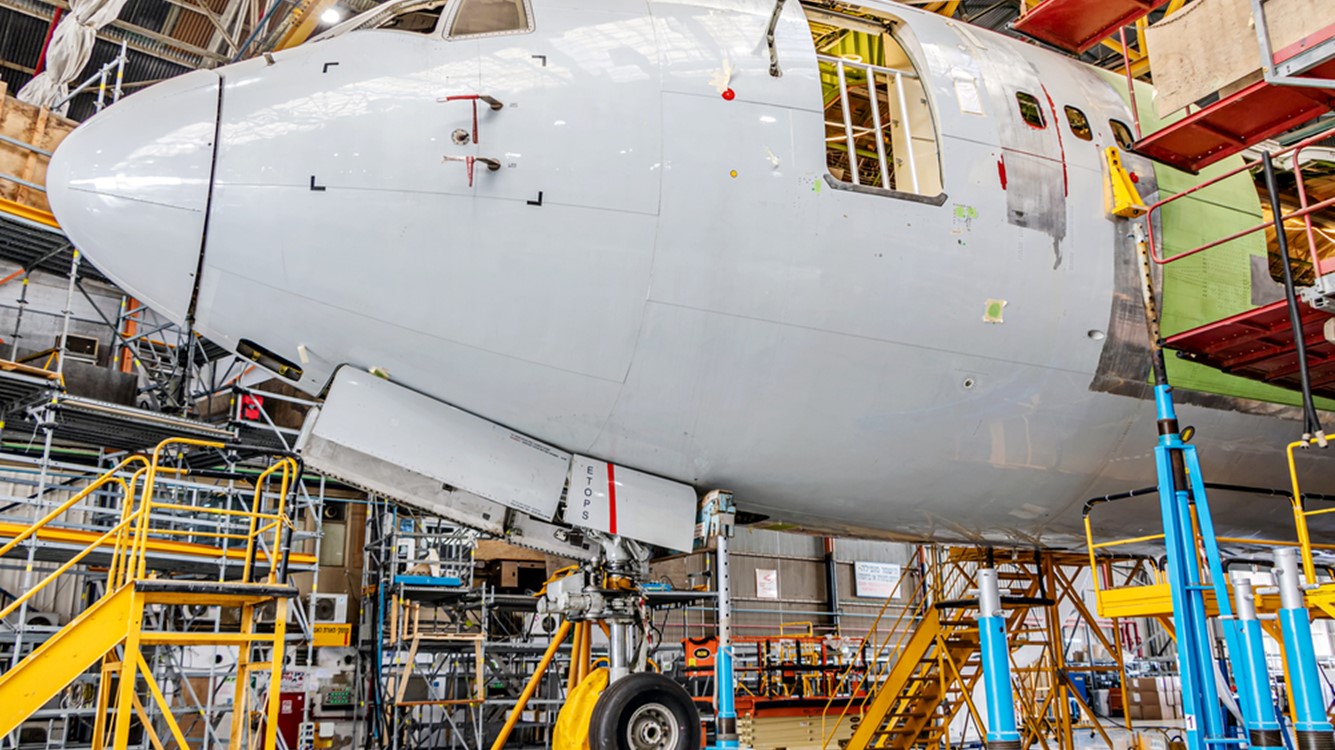Weak aircraft orders obscure underlying strength
Core capital goods orders pick up.

July 25, 2024
June durable goods orders dropped -6.6%, falling far short of market expectations due to weak civilian aircraft orders. The consensus forecast was for a 0.3% gain. May durable goods orders were flat on revision. Excluding transportation, durable goods orders grew 0.5%, more than doubling consensus forecasts.
Transportation orders tumbled -20.5% following growth in May. Civilian aircraft orders plummeted, despite Boeing reporting a monthly increase in orders from four planes in May to fourteen planes in June. July is primed for a bounce-back. Boeing has already booked 118 planes orders at the Farnborough International Airshow in the United Kingdom with two days remaining at the show to sign additional contracts. Defense aircraft also struggled, falling -10% after being the sectoral leader last month.
Motor vehicles and parts edged lower after downward revisions to May’s orders, snapping the streak of seven consecutive flat to positive readings. Soft orders reflect the surge in inventories on dealer lots, a major shift from what we saw earlier in the cycle when dealers could sell vehicles at a premium over list prices. Cox Automotive reports that inventory is up 110%, to 116 days over the last year while new vehicle prices remain flat on the month. Lease incentives are being sweetened, while many dealers are not offering discounts on the sticker prices.
Computer and electronic products orders rose 0.8%, marking the fourth consecutive monthly increase. A drop in orders for computers and related products was more than offset by a surge in communication equipment. Spending on generative artificial intelligence has been driving orders in the broader category over the last couple of years. Machinery orders, electrical equipment and appliances bounced back from weak May orders. Otherwise, most sectors were flat. Consumers leaned into spending, remodeling and upgrading as discounting picked up in June.
June shipments rebounded 1.2% after a weak May. The growth was carried by nondefense aircraft shipments. Nondefense capital goods shipments excluding aircraft, a proxy for nonresidential investment, ticked up in June. Durable goods inventories were flat month-over-month. Retailers and producers scrambled to front-run tariffs in May that just went into effect. Most sectors had modest changes while a defense aircraft inventory buildup offset a -1.6% drawdown from computers and related parts.
Capital goods orders excluding defense and aircraft, or core orders, which serve as a representation of anticipated business spending in the latter half of the year, rose 1% in June. That is the strongest since January 2023 and suggests we may see more resilience in business investment in the third quarter than we anticipated. The tailwind on tech-related investments remains strong. Firms are looking to boost productivity growth, while consumers are buying big ticket items for their homes again.
The strength in core capital goods orders suggests that we could see more investment than expected in the third quarter.
Ben Shoesmith, KPMG Senior Economist
Bottom Line
The strength in core capital goods orders suggests that we could see more investment than expected in the third quarter. That is welcome news, given the uncertainty surrounding the election and CEOs stated preference to hold off on big investments until the clouds surrounding the post-election policy lift. The third quarter is now expected to rise at a 1.6% pace, more than a percent below the strong pace of the second quarter. A drawdown in inventories and ongoing weakness in housing accounts for the bulk of that weakness. The Fed is expected to cut rates twice in 2024, starting in September.
Explore more

Small gain in durable goods orders
Businesses express uncertainty about the upcoming presidential election and potential changes in policy.

KPMG Economics
A source for unbiased economic intelligence to help improve strategic decision-making.

Turbulence beneath the surface: A view from abroad
Inflation appears to have peaked across much of the world.
Meet our team

Subscribe to insights from KPMG Economics
KPMG Economics distributes a wide selection of insight and analysis to help businesses make informed decisions.
